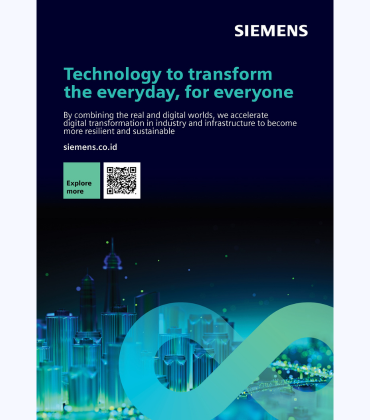Indonesia's Manufacturing PMI Returns to Expansion Level as Production Rises
02 Jan 2025

The rating agency S&P Global reported that Indonesia's manufacturing Purchasing Managers' Index (PMI) rose by 1.6 points month-on-month to 51.2 in December 2024. This increase was driven by optimism among industry players about the potential growth in demand this year.
"Indonesia's manufacturing economy ended 2024 on a positive note, with PMI rising for the first time since mid-year, alongside growth in sales and production capacity as of December 2024," said Paul Smith, Director of S&P Global Market Intelligence, in an official statement on Thursday, January 2.
PMI is an index that reflects the performance of a country's manufacturing sector. Specifically, an index below 50.0 points indicates contraction in the manufacturing sector, while an index above 50.0 points shows expansion.
Indonesia's manufacturing sector's expansionary trend ended in July 2024, with the PMI falling to 49.3. At that time, the index had been above 50.0 for 34 consecutive months, starting from September 2021.
Smith noted that some industrial companies are projecting an increase in production in the coming months. The majority of companies anticipate higher production this year due to improved macroeconomic stability and a forecasted boost in purchasing power.
He also mentioned that last month's production increase was marked by a rise in workforce absorption. This growth in employment was the result of increased production, a trend last seen in May 2024.
However, Smith highlighted that Indonesia's manufacturing sector continues to face challenges from rising raw material costs due to the weakening of the rupiah against the US dollar. Some industrial companies have raised their product prices to consumers. "Inflation rose in December 2024, though the highest growth in inflation occurred in August 2024," he said.
Association's Response
The Indonesian Food and Beverage Producers Association (Gapmmi) found that more than 50% of food and beverage industries opted to reduce margins instead of raising selling prices. This was due to the fact that consumer purchasing power had not yet fully recovered last month.
Gapmmi Chairman Adhi S. Lukman acknowledged that the weakening of the rupiah had increased the cost of imported raw materials as of December 2024. A small number of industrial players chose to raise product prices to prepare cash flow for meeting the 6.5% minimum wage increase that took effect this month.
Adhi stated that the 6.5% minimum wage increase this month would enhance consumer purchasing power. However, this increase would primarily benefit formal workers, totaling 60.81 million people or 42.05% of the employed population.
He estimated that more than 55% of workers in the informal sector would not experience the benefits of the minimum wage increase. This is because the government does not enforce minimum wage regulations in the informal sector.
Looking ahead, Indonesia's manufacturing PMI is projected to remain positive throughout the first quarter of this year, driven by increased demand leading up to Ramadan 2024.
"I believe Indonesia's PMI will remain positive until the end of Eid. This is the usual cycle. PMI will likely dip slightly after Eid 2025 before rising again by mid-year," Adhi said.
Original article here
This article is published in partnership with Katadata
















